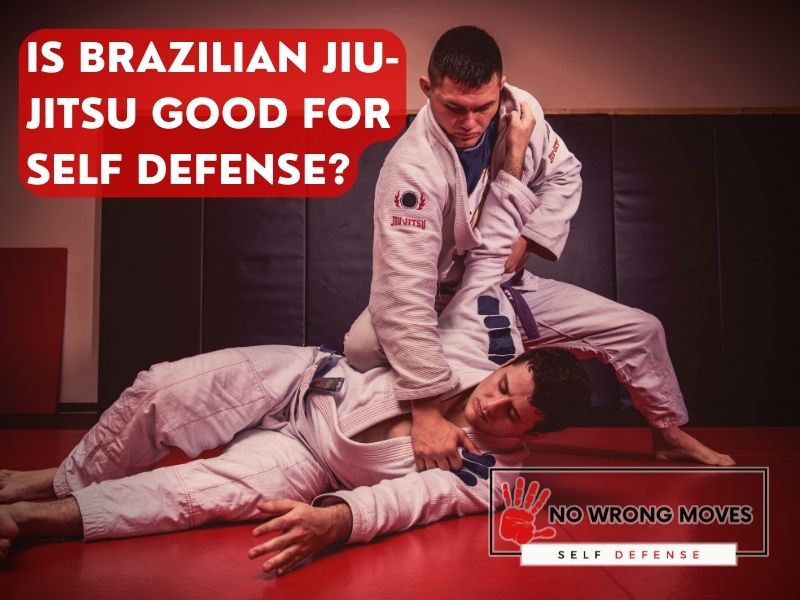
Considering Brazilian Jiu-Jitsu as a means of self-defense? It's got a fairly solid reputation by now, but quite a number of people still ask themselves the question, "is Brazilian Jiu-Jitsu good for self defense?"
In this article, we'll take a closer look at the effectiveness of Brazilian Jiu-Jitsu in real-life situations and whether it's worth considering for self-defense purposes. So let's grab our gi and jump right in!
The History of Brazilian Jiu-Jitsu
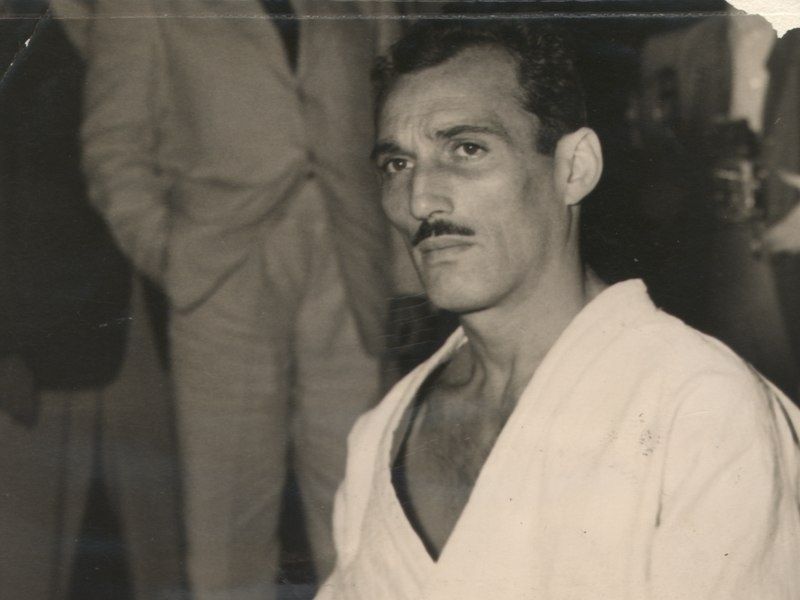
Brazilian Jiu-Jitsu was created by Mitsuyo Maeda, who was born in 1878 in Japan. At a young age, he became interested in martial arts, and eventually began studying under Judo founder Jigoro Kano.
In 1904, he was given the opportunity to travel to Brazil as part of a Japanese diplomatic mission. While there, he met a man named Gastão Gracie, who would later become his student.
Maeda taught Gracie Jiu-Jitsu (a derivative of Judo), and over time, Gracie's sons began to win many competitions against fighters who were much bigger and stronger than them.
In order to better protect themselves against these larger opponents, they began to adapt and modify Maeda's techniques, eventually creating the art of Brazilian Jiu-Jitsu.
Brazilian Jiu-Jitsu eventually spread to the United States, and in 1993, the Ultimate Fighting Championship (UFC) was created as a platform to pit different martial arts against each other in order to determine which one was truly the most effective.
In the early days of the UFC, Brazilian Jiu-Jitsu practitioners dominated the competition, solidifying its reputation as a incredibly effective form of self defense.
Is Brazilian Jiu-Jitsu Good For Self Defense?
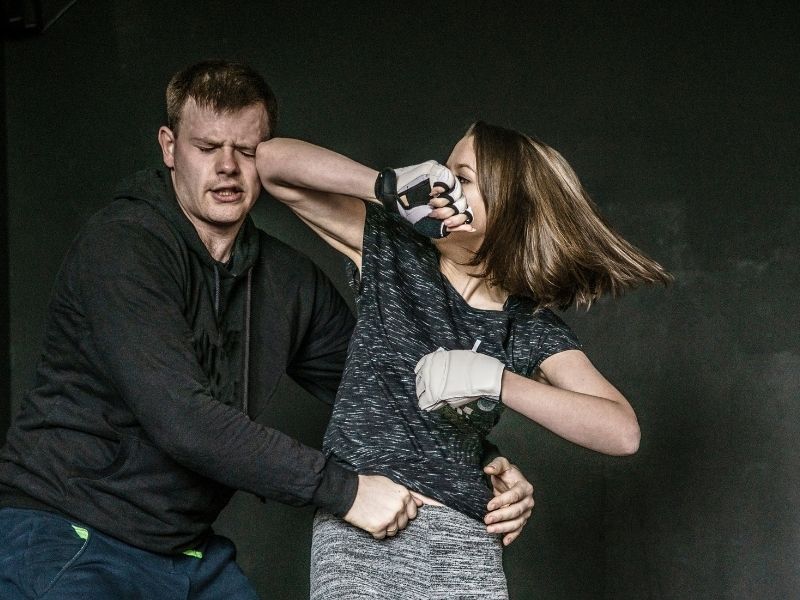
Brazilian Jiu-Jitsu is one of the most effective martial arts when it comes to self-defense--something many proud jujitsukas will eagerly point out!
The art is based on ground fighting and grappling, which makes it ideal for defending oneself against an attacker who may be larger or stronger than you.
BJJ also teaches techniques that can be used to restrain or incapacitate an opponent, so you can get away safely. In addition to being effective, BJJ is also a relatively safe martial art to learn.
It does not rely on brute force or striking techniques, which can often lead to serious injuries. Instead, BJJ relies on joint locks and holds to control an assailant, making it a safer option for those looking for self defense.
How Effective Is Brazilian Jiu-Jitsu In A Street Fight?
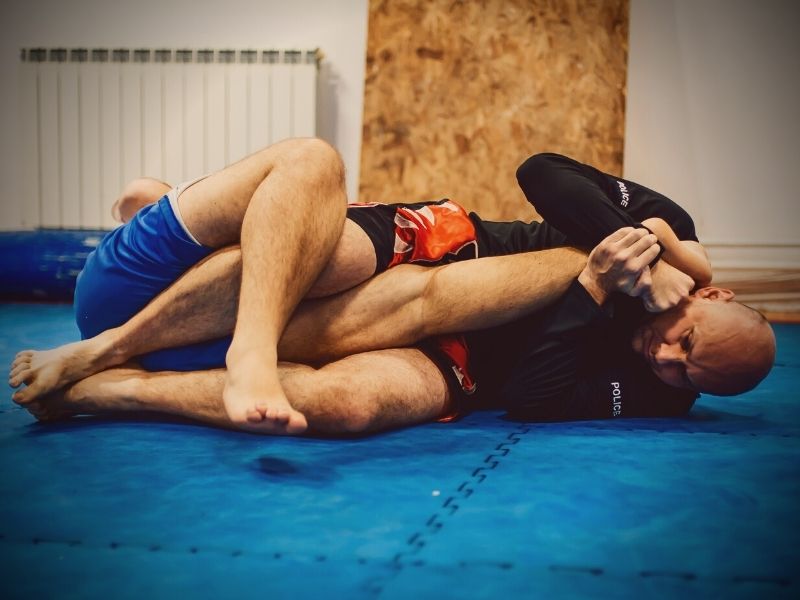
Brazilian Jiu-Jitsu was developed to control and defeat a larger and stronger opponent using joint locks and chokeholds. It's an extremely effective martial art for self-defense, but how does it fare in a street fight?
If you were out buying groceries and a mugger comes up to you demanding your wallet, would you be able to defend yourself? I know we'd like to think that, yes, we would know how to, but it's honestly hard to say.
Street fights are unpredictable and dangerous. You never know what your opponent may be carrying or how many friends they may have nearby.
However, if you have trained in Brazilian Jiu-Jitsu, you may have the skills necessary to take down an attacker, as Brazilian Jiu-Jitsu focuses on using leverage and technique to control and submit your opponent.
This is incredibly useful in a street fight situation where there are no rules, and where anything goes. You can use whatever moves you need to in order to defend yourself and escape the situation safely.
Why Choose BJJ Over Another Discipline?
There are quite a number of reasons why people might choose to learn Brazilian Jiu-Jitsu over any other discipline. Some of the most common reasons include:
- Brazilian Jiu-Jitsu is a very versatile martial art that can be used for self-defense as well as competition.
- Because it relies heavily on technique and leverage, Brazilian Jiu-Jitsu is one of the best martial arts for smaller individuals to learn.
- Training is fun and highly addictive, and practitioners typically see great improvements in their overall fitness and health.
- Brazilian Jiu-Jitsu is one of the few martial arts that offers a real chance of defeating someone much larger and stronger than yourself.
The Wrap-Up
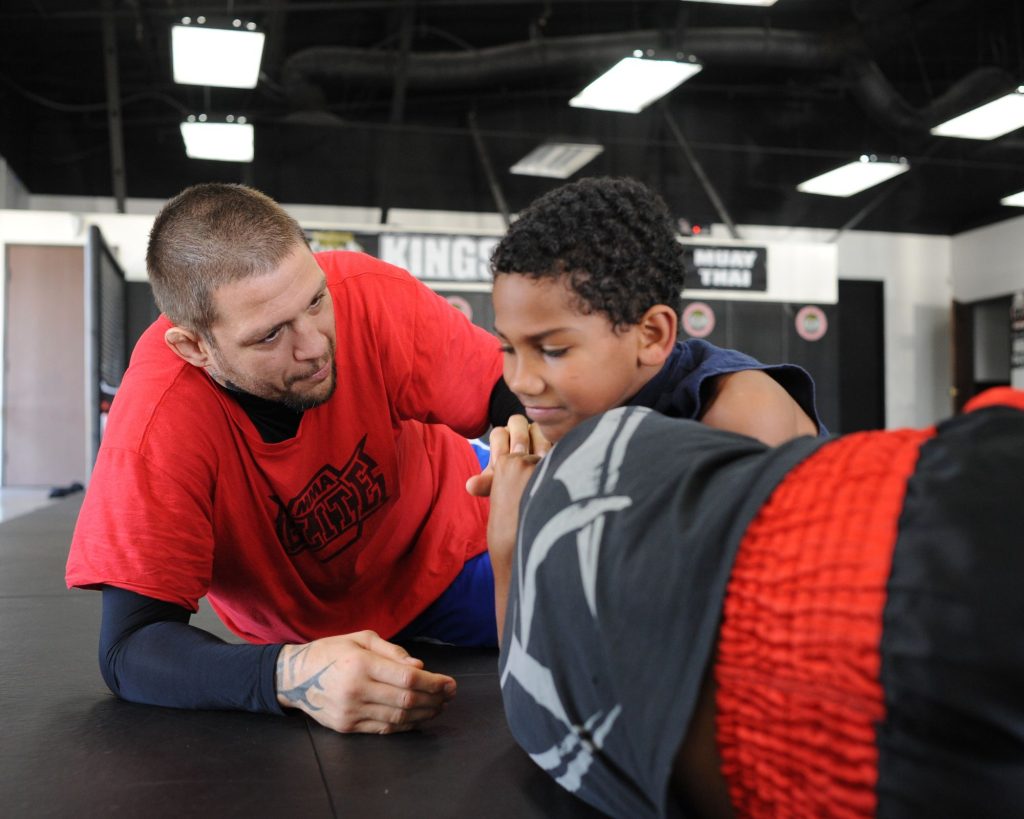
And there you have it, Brazilian Jiu-Jitsu is not only an excellent sport, but it is also an effective self-defense system. Its principles, techniques, and mindset are applicable to real-life situations and can make a significant difference in one's ability to protect themselves and their loved ones.
The ability to control an attacker without causing excessive harm and to use leverage to overcome a larger opponent is a unique feature of BJJ.
With its emphasis on practical training and real-life scenarios, Brazilian Jiu Jitsu can help you develop the skills and confidence needed to defend yourself in any situation.
So if you're looking to get in shape, build your self-confidence, and learn effective self-defense, Brazilian Jiu-Jitsu might just be a wonderful fit for you!
FAQs To Consider When Choosing A Martial Arts Discipline For Self-Defense
What Are the Key Factors to Consider when Choosing a Martial Arts Discipline for Self-Defense?
One of the key considerations is whether you want to learn from home or take classes at a local studio.
If you choose to learn from home, there are a number of online resources that can be helpful, including instructional videos and forums where you can ask questions and get advice from more experienced practitioners.
However, it is important to make sure that you are getting quality instruction, as there are also many free resources that may not be as reliable. If you choose to take classes at a local studio, you will benefit from in-person instruction from a qualified instructor.
In addition, most studios also offer opportunities to spar with other students, which can be beneficial for learning how to apply your skills in a real-world context.
What Are the Benefits of Training in A Martial Art for Self-Defense?
Joining a martial arts class can provide many benefits beyond just learning how to defend yourself.
For one, it can be a great workout. Many martial arts styles involve a lot of cardiovascular activity, as well as strength and flexibility training. Even if you're not interested in getting in shape, the physical benefits of martial arts training can be helpful in reducing stress and tension.
In addition, knowing how to defend yourself can give you a sense of safety and confidence. And finally, learning a new skill is always satisfying and can help you meet new people. So whatever your reasons for wanting to train in martial arts, there are plenty of good reasons to give it a try.
What Are Some of The Most Popular Martial Arts Disciplines for Self-Defense?
If you change your mind about learning Brazilian Jiu-Jitsu for self defense, what are some other martial arts disciplines you could learn instead?
- Kung Fu
- Kyudo
- Muay Thai
- Ninjutsu
[author-box-jpx-fitness]
